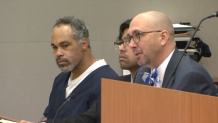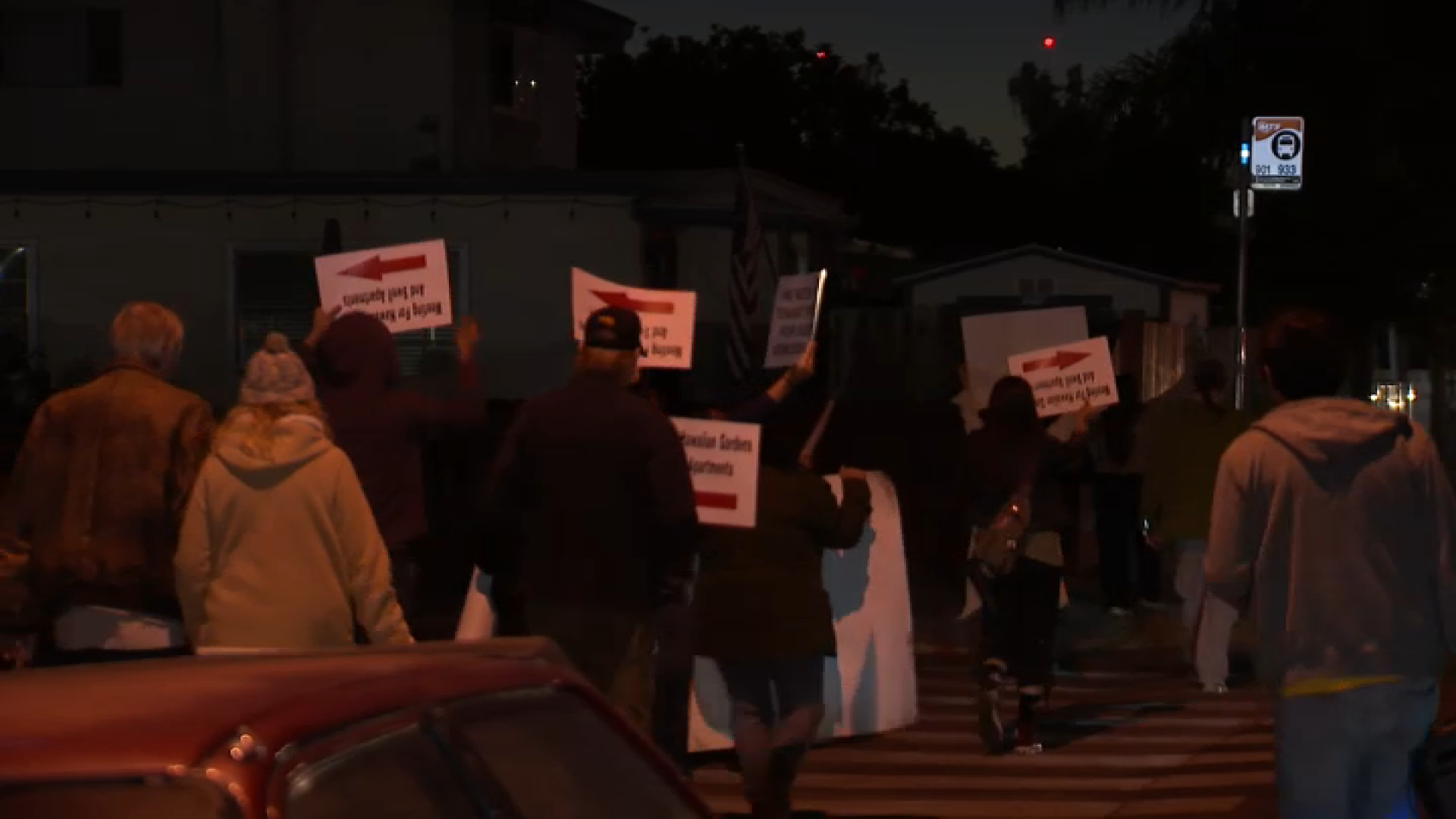
A San Diego County judge shot down a public defender’s efforts to get data that he believes could show racial bias on the part of the San Diego County District Attorney’s Office. Deputy Public Defender Abe Genser told the court he believes the DA accepts lighter plea agreements for white defendants than Black defendants.
Tuesday’s motion is the latest ahead of a hearing made possible under a relatively new law, the Racial Justice Act. That law allows the court to dismiss cases if defendants can prove racial bias was exercised during an interaction with law enforcement or prosecutors. That includes any part of the process, ranging from detainment, evidence collection, prosecution and even sentencing.
“I have, just in my own work related to the Racial Justice Act, records related to five different areas,” Genser said. “And in every single area that we have looked at, the district attorney’s office has demonstrated racial bias. Every area. Sometimes it is very glaring, and sometimes it is less glaring.”

Get top local stories in San Diego delivered to you every morning. Sign up for NBC San Diego's News Headlines newsletter.
Genser represents Parrish Chambers, Jr., a Black man charged with murder. He’s accused of beating Connie Dadkhah to death inside her condo in June of 2022. NBC 7 Investigates has reported on that case and concerns about how San Diego police responded. Records show several neighbors called 911 repeatedly, begging officers to help her after they said they witnessed a man smash his way inside through a balcony sliding-glass door. Once they arrived at the complex, police opted not to force their way inside her unit.

The next morning, Chambers flagged down a neighbor, asking them to call police. More than 12 hours after a neighbor first called 911, officers returned to Connie’s condo complex and arrested Chambers, Jr. after they found Connie dead inside. Chambers has pleaded not guilty to a murder charge.
Local
The argument from the defense
As Chambers’ public defender, Genser argued that the court should compel the DA’s office to create and release records, specifically:
- A list of all San Diego homicides for the last five years with details on the charges, allegations and case numbers
- The race of the defendant and victim in each case
- Details on plea agreements reached and rejected offers
Public agencies aren’t required to create records under California public records laws. In court, Genser argued that his request is different because it’s evidence connected to a Racial Justice Act motion.
“The argument can’t be, ‘Well, we failed to keep good records,’” Genser told the court. “The position from the DA has essentially been we don’t want to find out if we’re racist. The district attorney’s office should be eager to rid itself of bias. Until we see the records, we don’t know, and that’s what this hearing is about.”
“I think we need to find out whether or not bias has infected that aspect of our judicial system, and without doing that analysis, we leave open the possibility for bias,” Genser said.
A tale of two plea deals
Genser referenced two separate cases with white defendants which ended in plea agreements with sentences similar to the one he requested for Chambers. He argued that both cases were more egregious than Chambers’ case.
“One case is pouring boiling water over a person until they died,” Genser said. “The other case is raping a person to death.”
For Chambers, Genser says his client was prepared to accept a plea deal of 17 years in prison for voluntary manslaughter, an acceptance of responsibility for her death, and two strikes on his record. He says that offer was rejected by the district attorney’s office.
Genser said the only way to ensure bias isn’t at play is by compelling the DA to produce the records he’s asking for.
“Maybe once we’ve got the records, I’ll be wrong,” Genser said. “This will be a case where we look at the statistics and the prosecution is just spot on. They’re doing a great job. But without looking at the records, we won't know.”
The argument from the prosecution
Deputy District Attorney Martin Doyle cited a list of reasons why the judge should deny Genser’s motion, which included the fact that the request would be too burdensome on his office.
“The court is being asked for the district attorney's office to engage in a very labor-intensive investigation on behalf of his client,” Doyle said. “The court has to guard against fishing expeditions. We can't have every single case, have dozens of paralegals tear through manual files to create records based on a hunch unsupported by basically anything.”
After COVID public health protocols shut down courthouses for months, Doyle said an extreme backlog of cases led to “an extreme pressure to settle cases,” within the district attorney’s office. He said that led to Assistant District Attorney Dwayne Woodley accepting plea deals at a rate unseen. “He didn’t do that before and doesn’t do that now,” though Doyle did not address the two cases involving white defendants directly.
Doyle also pushed back on sharing details behind plea agreements, arguing that information should stay confidential.
“Those are sensitive negotiations. They are private, and they are done for very important purposes, to encourage the parties to speak freely and to negotiate cases, understanding that those negotiations and those discussions will not be used against them,” Doyle said. “They're not going to come to us with offers. They're not going to say my client offers to be guilty to X, Y or Z in exchange for so many years if they know that that discussion is immediately going to become part of a public filing justifying why one defendant or another may or may not have a Racial Justice Act claim.”
The judge's ruling
Judge Peter Deddeh told the court he carefully reviewed the arguments from both sides prior to the hearing and ruled in favor of the district attorney’s office.
“I'm going to deny your motion,” Deddeh said. “I find that there's not a showing of good cause. That the requests you're making are overbroad and vague and unduly burdensome to the prosecution.”
It’s unclear whether a full Racial Justice Act hearing in Chambers’ case will take place before or after his trial. That trial is scheduled to begin in mid-July.



